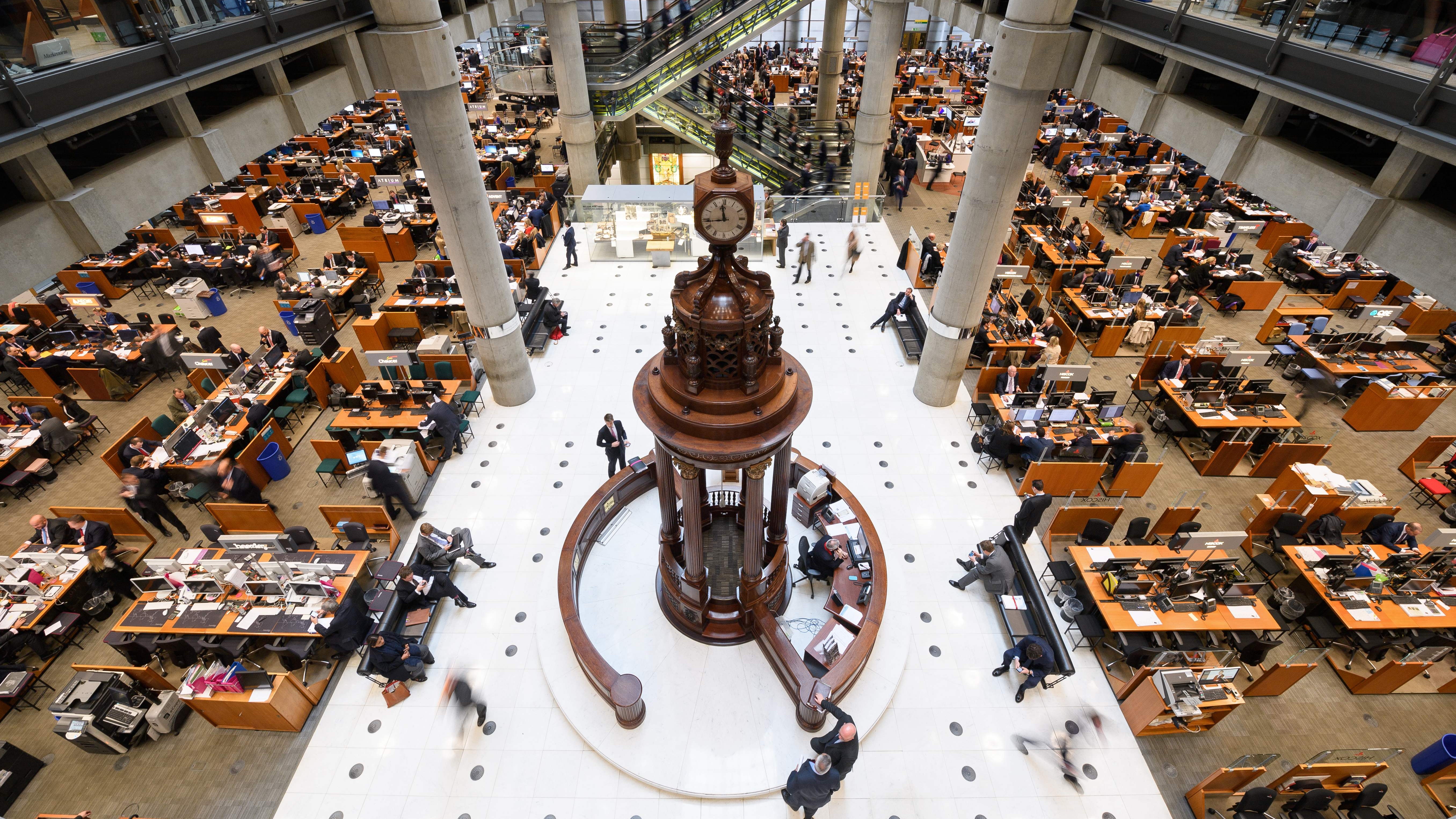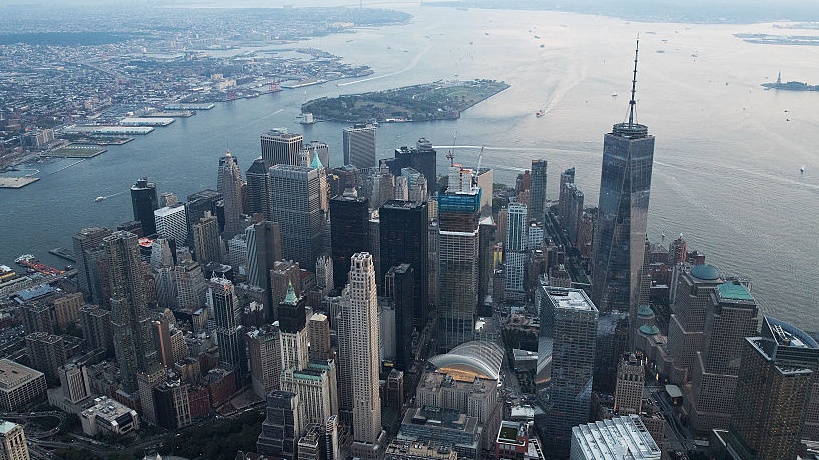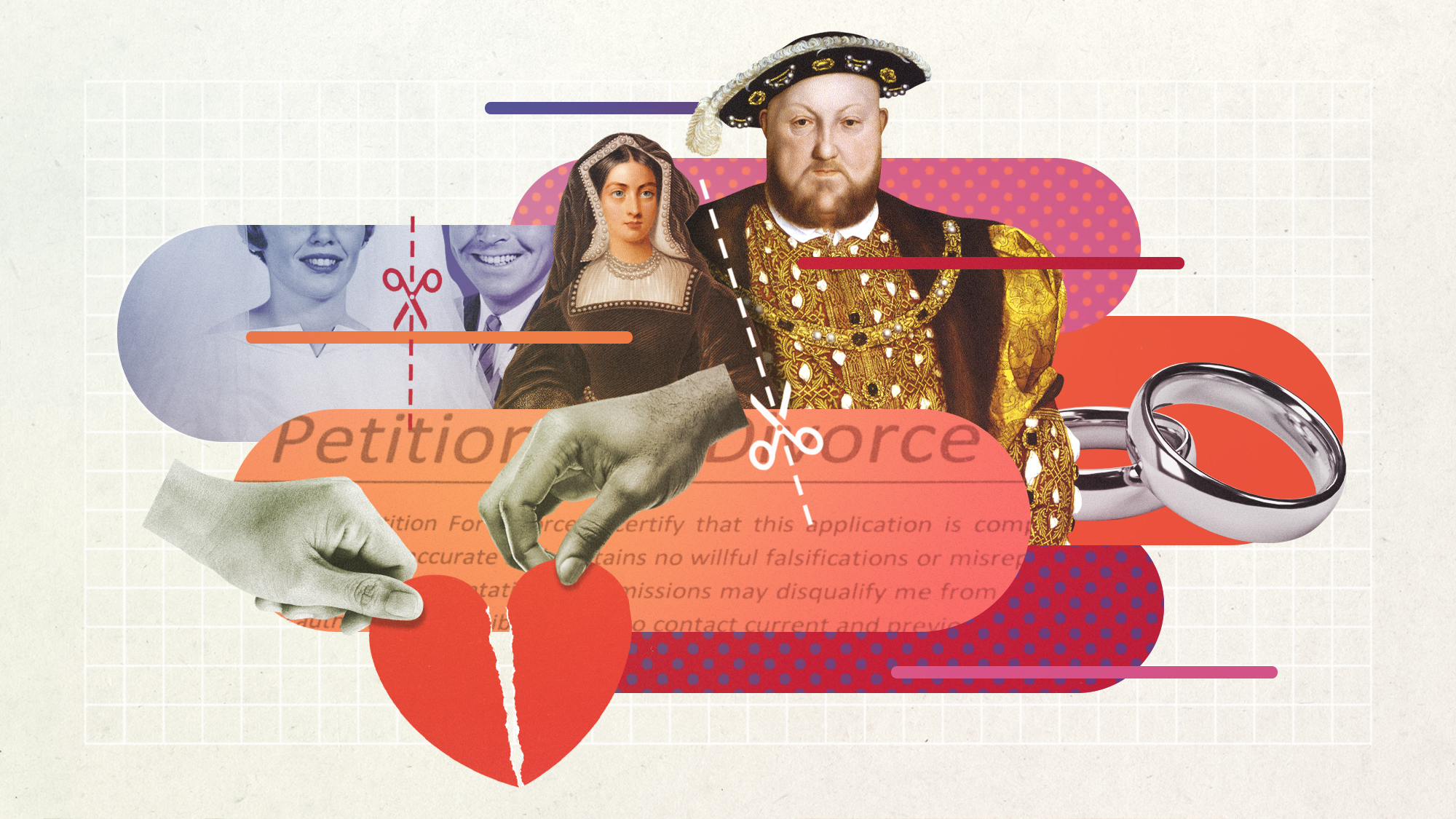52 ideas that changed the world - 40. Insurance
Managing and mitigating risk has been part of society since the dawn of humankind

A free daily email with the biggest news stories of the day – and the best features from TheWeek.com
You are now subscribed
Your newsletter sign-up was successful
In this series, The Week looks at the ideas and innovations that permanently changed the way we see the world. This week, the spotlight is on insurance:
Insurance in 60 seconds
Insurance is a risk-management mechanism that protects people and organisations from financial loss.
The Week
Escape your echo chamber. Get the facts behind the news, plus analysis from multiple perspectives.

Sign up for The Week's Free Newsletters
From our morning news briefing to a weekly Good News Newsletter, get the best of The Week delivered directly to your inbox.
From our morning news briefing to a weekly Good News Newsletter, get the best of The Week delivered directly to your inbox.
The insured policyholder pays an insurer a fixed amount (a premium) in exchange for the insurer’s guarantee that it will compensate the policyholder in the event of a covered loss. The loss may or may not be financial, but it has to reducible to financial terms.
The insured and insurer agree a contract – the insurance policy – that details the conditions and circumstances under which the insurer will compensate the insured.
If the insured experiences a loss that is covered by the policy, they submit a claim to the insurer. If the insured party’s loss is covered under the conditions of their policy, the insurer will compensate them to the amount agreed in that policy.
How did it develop?
A free daily email with the biggest news stories of the day – and the best features from TheWeek.com
Looking to identify potential risks and protect yourself against them is a concept that has been around as long as humankind itself.
And insurance, something like we know it today, has existed for thousands of years, with the first methods of analysing and distributing risk practised by Babylonian merchants as early as 4000-3000BC.
The first written insurance policy was on a Babylonian monument that had the Code of Hammurabi carved into it. Hammurabi was the Babylonian king who reigned from 1792 to 1750BC.
“The Hammurabi code of laws, a collection of 282 rules, established standards for commercial interactions and set fines and punishments to meet the requirements of justice,” says the History website. The code included the basic insurance that a debtor didn’t have to pay back their loans if a personal catastrophe – such as death, disability or disaster – made it impossible.
In Ancient Rome, burial societies existed that paid funeral costs of their members out of monthly dues. Burial insurance is very common today.
Insurance developed further towards systems we use today in the Dark and Middle Ages, when craftsmen would pay dues into guilds that trained apprentices.
“The wealthier guilds had large coffers that acted as a type of insurance fund,” says Investopedia.
“If a master’s practice burned down – a common occurrence in the wooden hovels of medieval Europe – the guild would rebuild it using money from its coffers. If a master was robbed, the guild would cover their obligations until money started to flow in again. If a master was suddenly disabled or killed, the guild would support them or their surviving family.”
In the 17th century, shipping was taking off around the world thanks to the establishment of new colonies. A coffee house owned by Edward Lloyd, later of Lloyd’s of London, was the main meeting place for merchants, ship owners and others seeking insurance.
Venture capitalists would fund expeditions around the world, in exchange for a cut of the returns from the voyages. Those interested in taking a risk on a voyage would take responsibility for a share of the cargo.
At the same time, French mathematicians Blaise Pascal and Pierre de Fermat were working out a way to determine the probability of certain events occurring. They succeeded in discovering a new way to express probabilities and thereby understand levels of risk, leading to the first actuary tables, the likes of which are still used today to calculate insurance rates.
After the Great Fire of London in 1666, groups of underwriters who had previously dealt only with shipping expeditions began to form companies that insured home and business owners against the risks of fire, as the Museum of London explains.
Insurance companies grew in size alongside the industrial revolution, becoming a routine part of commercial activity.
How did it change the world?
Insurance-like models became the basis of the welfare state, which was introduced in the UK following the damning Beveridge Report published during the Second World War.
In a welfare state, compulsory social insurance – for example, the National Insurance payments in the UK – is taken by the government and used to “provide benefits to persons and families during periods of greatest need”, says Encyclopaedia Britannica.
National Insurance was introduced as the first national contributory system of insurance against illness and unemployment.
Many citizens of developed countries across the world rely on private health insurance as their primary form of medical support.
Insurance is what allows some riskier activities to take place. “It actually plays a more fundamental role in the workings of a modern society, being a necessary precondition for many activities that would not take place were it not for insurance,” writes Patrick M Liedtke. “Insurance is a key component of economic development.”
It works as an economic driver by acting as a safety net for commercial organisations, meaning businesses are more prepared to take risks that can lead to growth.
“Innovative technologies could not be commercialised and start-up enterprises could not take risks without commercial insurance, airlines could not fly aeroplanes without insurance backing, be it captives as self-insurance or commercial insurance,” says the Geneva Association. “Only the biggest players can be self-insured and survive major losses.”
It also provides stability and peace of mind to people around the world. By knowing they are financially protected against the loss of their home, business or even lives, people and their families can feel more secure.
-
 What to know before filing your own taxes for the first time
What to know before filing your own taxes for the first timethe explainer Tackle this financial milestone with confidence
-
 The biggest box office flops of the 21st century
The biggest box office flops of the 21st centuryin depth Unnecessary remakes and turgid, expensive CGI-fests highlight this list of these most notorious box-office losers
-
 The 10 most infamous abductions in modern history
The 10 most infamous abductions in modern historyin depth The taking of Savannah Guthrie’s mother, Nancy, is the latest in a long string of high-profile kidnappings
-
 52 ideas that changed the world - 44. Land registration
52 ideas that changed the world - 44. Land registrationIn Depth The legal registration of land allowed the building of mass property empires
-
 Divorce in 60 seconds: ideas that changed the world
Divorce in 60 seconds: ideas that changed the worldIn Depth From Henry VIII to the modern day, divorce has reshaped our notion of marriage